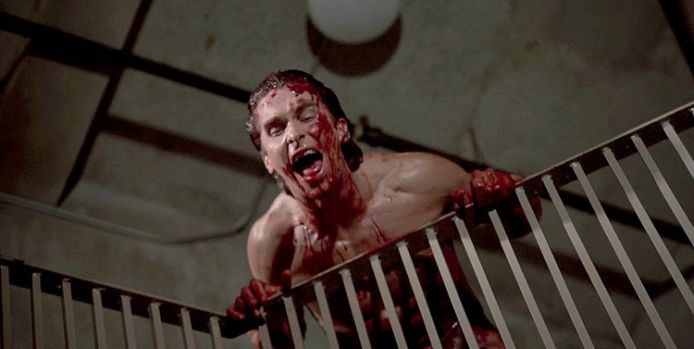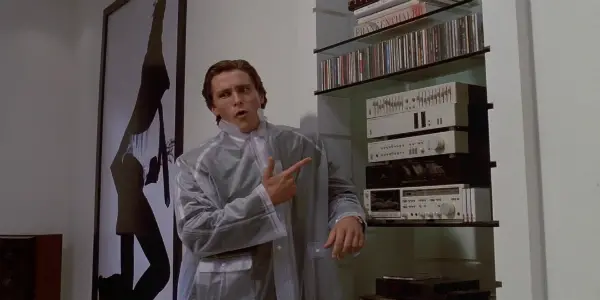What Constitutes A Cult Film?

I'm a film buff from South East England. I run…
Cult films are difficult to define, as they vary in scope, themes, genre and in just about every other way. Despite these ambiguities, it is demonstrable that the revered Roger Ebert once got the definition entirely wrong.
Avatar just isn’t cool enough
In his review of Avatar, Ebert described the film as an “event” that was “predestined to launch a cult.” Avatar was indeed an event, as the film had been the subject of a relentless $150 million promotional campaign that employed methods as commercial and corporate as McDonald’s Happy Meal toys. An otherwise emphatic Ebert acknowledged this caveat, describing it as a “dubious advance buzz,” but I think this manufactured buzz should immediately negate any arguments that it is a cult film. Any highly successful blockbuster film with a profile that’s been pumped up by Rupert Murdoch’s deep moneybags can rarely be called a “cult film,” as its reach and grasp are far too large.

Moreover, Avatar is not a cult film because of its overwhelming focus on technology rather than characters, themes and narrative. James Cameron‘s so-called epoch did boast some stunning visuals, which were widely touted as game changing, but they weren’t stunning enough to distract me and many others from the overlong narrative, hackneyed themes, tired sentimentalism and the dull lead performance by Sam Worthington. The visuals also failed to distract many people from reaching the conclusion that Avatar was just Dances With Wolves in space with elongated smurfs.
Ebert’s prediction was clearly wrong, as a cult following never developed, Avatar was very much a film of the moment that’s remembered more for its huge box office returns ($2,787,965,087 – the highest in history) than for its characters and universe. It will likely return to public discussion in a big way after the sequel’s release in 2017, but I find it highly doubtful that any of these will be considered cult films either. They are just too big, too famous and most of all – just not cool or characterful enough.
Elements of cult films
I got to thinking about cult films when I visited The Crafty Pig in Manchester’s Northern Quarter. The restaurant/bar has an attractive frontage that’s styled like a retro cinema, but the real cinephilia is to be found on the menu. It is littered with various cinematic references; the burger section titled “Big Kahuna Burger” revels in the fast food discussions of Pulp Fiction. Amongst the options was of course the “Royale with Cheese,” a simple double beef burger with cheese and bacon; the “Great Vengeance with Furious Anger,” a fiery burger with chilli beef and jalapeños; the “Vincent Vega,” a chicken burger with pulled chicken, and the “Mia Wallace,” the crispy cajun aubergine vegetarian option.

It takes a special film to influence a restaurant’s menu to this extent, and no amount of money or promotion could create the cult following that Pulp Fiction achieved – it is perhaps the most prominent cult film of all time.
A signature element of most cult films is an eminently quotable script. Although a film like Vampire’s Kiss or The Big Lebowski may not contain lines that are in common parlance, much of the cult film genre contains many lines of dialogue and phrases that people will quote with great relish, to the point that it will often be their main form of communication with each other! From “English, motherf*cker! Do you speak it?,” “‘I’m gonna get medieval on your ass” and “Oh man, I just shot Marvin in the face” to Jules Winfield’s (Samuel L. Jackson) vitriolic recital of Eziekal 25:17, Pulp Fiction has quotable moments in abundance. The moments in which these lines occur are also highly memorable. Vega’s accidental killing of Marvin is a classic example of black comedy, and it received a great laugh during a screening I attended at the characterful Duke of York’s Picture House in Brighton.

So iconic is Pulp Fiction that it has spawned various illustrations and artworks, the most notable one being the graffiti art by Banksy near Old Street station in London. Created in 2002, it was a minor tourist attraction until 2007, when it was removed by Transport for London despite being worth an estimated £300,000. I couldn’t see the Na’vi people ever adorning a brick wall in some hip, gentrified neighbourhood – could you?
Pulp Fiction is a cult film about cult films. Quentin Tarantino‘s work is famous for its cineliteracy and homages to the films he grew up watching. However, its success at the box office ($213,928,762), widespread influence and many forms of merchandise make Pulp Fiction very much part of the mainstream, something that is rather incongruous with a “cult film” image. Despite this and also what I said about Avatar, a big budget and large profile does not necessarily negate the notion of it being a cult film. Look at Cameron‘s early films The Terminator and Terminator 2: Judgement Day; the former had a low budget of an estimated $6,400,000, however it soon transformed into a massive franchise with the sequel costing $102,000,000 (an unprecedented amount at the time) and spawning further sequels and scores of merchandise. But both films’ compelling political themes and influence on science fiction (a genre particularly prone to cult films), places them firmly in the cult canon.
Irony is the most fun
One of the primary earmarks of a cult film is the marked absence of mainstream attention or appreciation. A notable example of this is Ridley Scott‘s Blade Runner. Its critical reception upon release was lukewarm, but the many different cuts of it have since seen intense adulation from both legions of fans and critics alike. I personally found the film very soporific indeed.
Another more interesting example is the infamous Showgirls, Paul Verhoeven‘s shamelessly trashy, ludicrous film that destroyed the NC-17 certificate’s commercial viability before it had a chance to get going. Showgirls is much more fun than Blade Runner, and its unhinged and often risible sexuality and the critical onslaught it endured made it not only a cult film but an ironic cult film, which is often the most enjoyable kind. The combination of gratuitous sex and reputation as one of the “worst films ever made” made it a smash hit on home media, and the considerable amount of cultish ironic appreciation generated a whopping $100 million for MGM, placing it amongst their twenty top selling titles. It’s definitely worth a late-night viewing for its terrible dialogue alone.

One of my favourite cults has been the cult of Nicolas Cage. With his curious hair and histrionic acting, Cage is wonderfully idiosyncratic. I almost always enjoy his screen presence, and for that reason he’s one of my favourite actors. I wasn’t ahead of the crowd by any means, as Cage has been the subject of Internet memes for the past few years, building a fandom that revels in his distinct “Cagesque” qualities.
Cage has been noted for his ill-advised role choices. However, in the past decade or so he has become one of Hollywood’s foremost pay cheque actors with turkeys such as Stolen, Outcast, Rage and Left Behind. Although these titles are too dull to even be considered as “so bad they’re good,” I’ve never seen a Nic Cage film that didn’t feature at least one golden scene, such as this delightfully theatrical argument in Rage (AKA Tokarev).
I was keen to champion the merits of The Wicker Man in a review that was headed with “As a piece of comedy, it is excellent.”
“As a horror film, though, it fails completely, and I mean completely. For instance, there is a dream-within-a-dream sequence that missed the mark so spectacularly that I burst out laughing in utter shock. Funnier than that, though, is Nicolas Cage, whose lines “How’d it get burned?!,” “What’s in the bag, a shark or something?” and “Oh no! Not the bees! Aghhhh!” deserve to be in the AFI Top 100 Quotes thanks mainly to Cage‘s, shall we say, “Cagesque” delivery.
The terrific script is laced with unintentionally funny lines, another notable moment being when Cage turns the acquiring of a bicycle into a serious police procedure – *draws gun* “Step away from the bike.” Merely quoting these lines here does not do them justice, as you have to see it to appreciate it. As you may know, the film’s direction was so markedly ill-judged that the aforementioned scenes have now become legendary in the online community.”
I have to return some videotapes
I have enjoyed the quirks and characters of many cult films, but few of them have engrossed me like American Psycho. Adapted from Bret Easton Ellis’ excellent satirical novel, Christian Bale‘s perfectly realised interpretation of the central character Patrick Bateman made the film a cult sensation.

My father had started to read the novel back in the early ’90s after witnessing its popularity with commuters. However, he was so repulsed by the book’s first instance of strong violence that he not only stopped reading it but threw it away in angry defiance. I became aware of the novel and film as a child after seeing VHS copies in various shops, but I was told that under no circumstances was I allowed to watch it. I ended up seeing it when I was 13 and discovered that not only was its violence minimal in comparison to the extremely violent book but it was also hilarious and brilliantly eccentric.
My friends and I have all seen and read American Psycho, and for many years we have fitted numerous lines such as ‘”Just say no” and “Don’t just stare at it – eat it” into conversation. I even used “I have to return some videotapes” as a genuine lie once, which is something I’m quite proud of. I also went to a fancy dress party as Bateman, buying a rather impressive double breasted suit from a charity shop and meticulously crafting his business card using a printed photo from Google images. I even bought a cheap raincoat and business card holder from eBay. This is all a bit sad, you might say, but I proved I was the ultimate fan!
Conclusion
The perfect cult film has to be at least one or several of the following: it has to be brimming with life and personality, have at least one quirky character, unusual plot developments, interesting visuals, a “killer” score and a slight alienation from the mainstream. They may also be transgressive in their depiction of violence and/or sexuality; many exploitation films such as Cannibal Holocaust and the pretentiously nasty Salo can be considered cult films.
But of course this is all very subjective and open for contention – one man’s quirky is another man’s annoying, one man’s unusual is another man’s boring. True film buffs, though, will agree that the feeling included in a film’s cult following, whatever that may be, is one of the most enjoyable aspects of film fandom.
Are you a fan of cult films? What is your definition of a cult film? Feel free to discuss the topic in the comment section below!
(top image source: Lionsgate Entertainment)
Does content like this matter to you?
Become a Member and support film journalism. Unlock access to all of Film Inquiry`s great articles. Join a community of like-minded readers who are passionate about cinema - get access to our private members Network, give back to independent filmmakers, and more.
I'm a film buff from South East England. I run Hawkensian.com, which comprises mostly film reviews but also various opinion pieces on history and politics.













